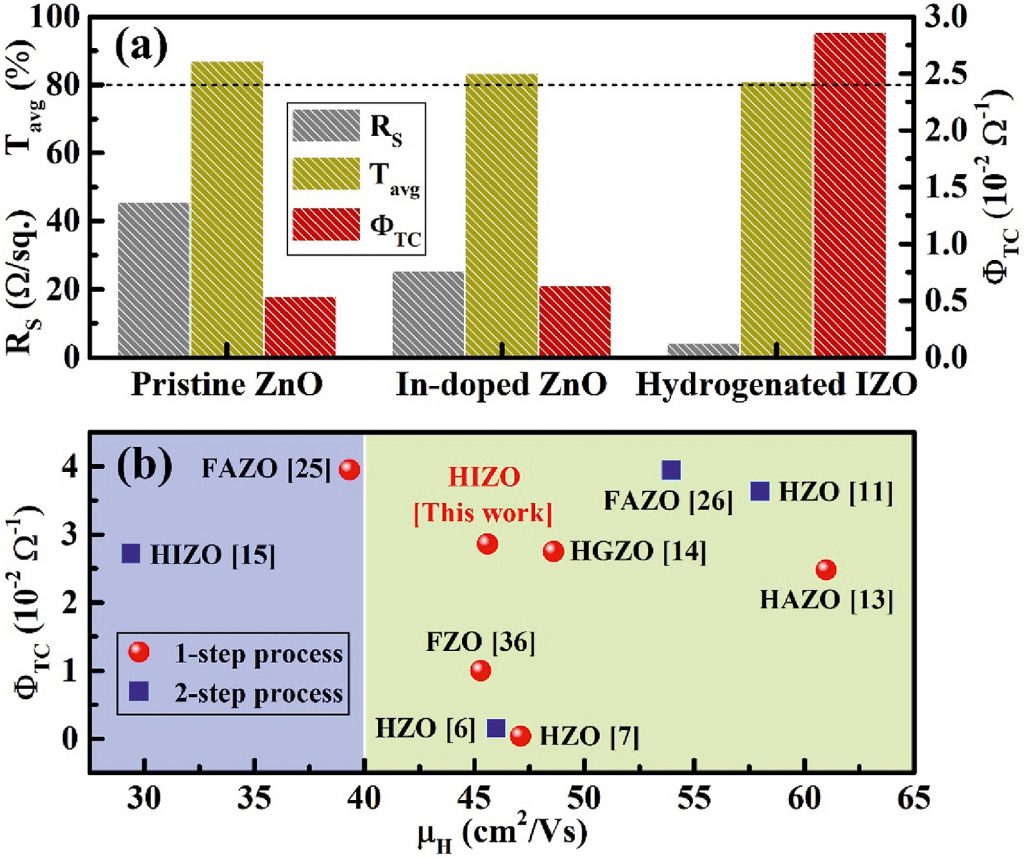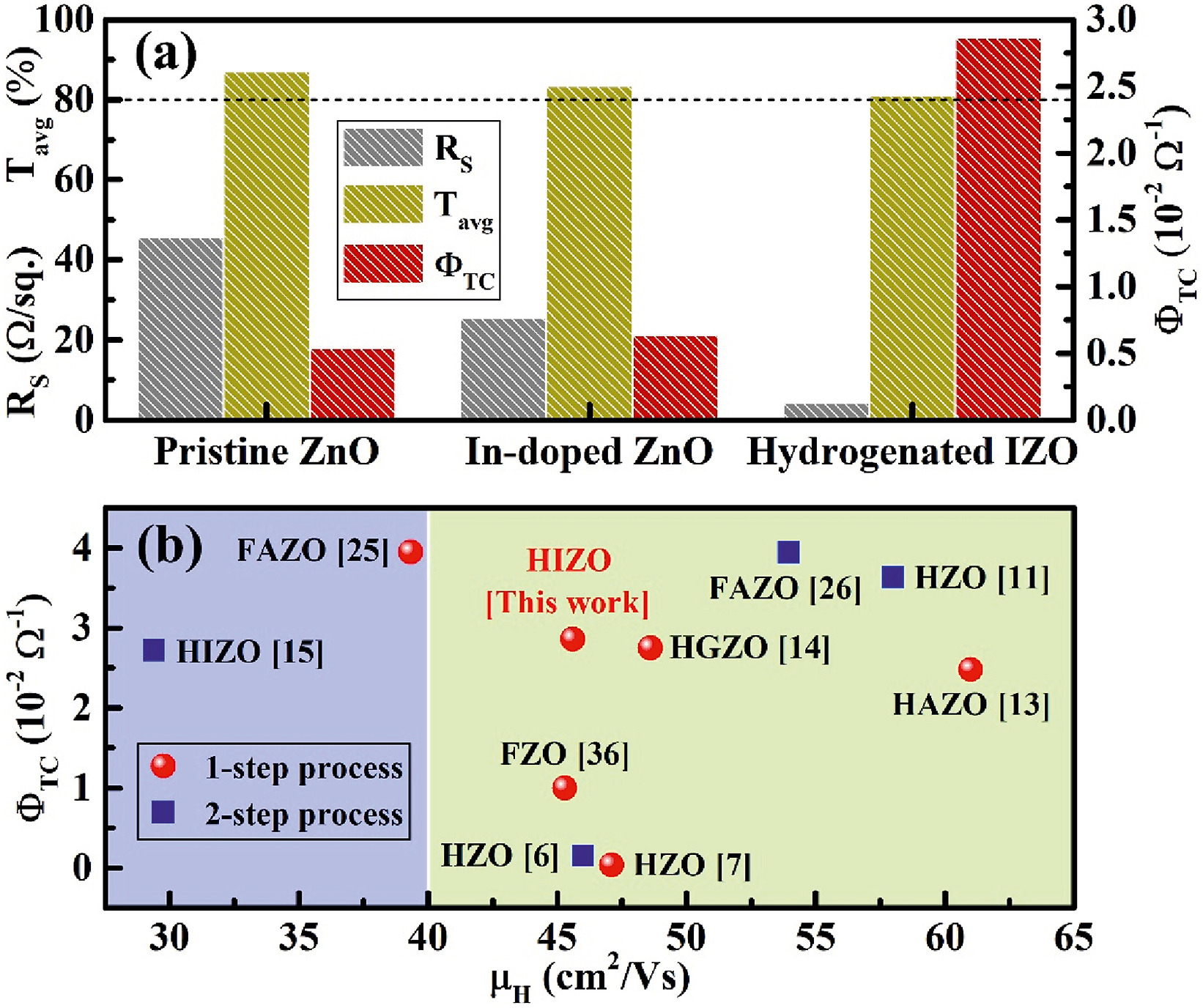In 26 April 2023, we have successfully published a new study on Journal of Science: Advanced Materials and Devices. This journal has a impact factor of 7.382 in 2022.

In this study, We successfully synthesized hydrogenated In-doped ZnO films with a low resistivity of 5×10-4 Ωcm and a good transmittance of 80% in the visible region. Furthermore, the electron mobility of the films achieves as high as 45.6 cm2/Vs, which is enhanced by more than 100% compared to the singly In-doped ZnO (IZO) and pristine ZnO films. The analysis of temperature-dependent mobility indicates lattice scattering as the dominant mechanism disturbing carrier transport in the hydrogenated film. According to the Drude model theory, the optical carrier concentration and mobility determined from plasma wavelength also exhibit a significant role of lattice defects. As a result, the reduction in lattice defects is demonstrated to remarkably enhance the mobility and transparent-conducting performance of the hydrogenated IZO films. Specifically, hydrogen passivation and compensation of indium doping significantly decrease Zn-related defects (vacancy and interstitial) as carrier traps and scattering centers in the films.
Details of this study can access via this Link.

